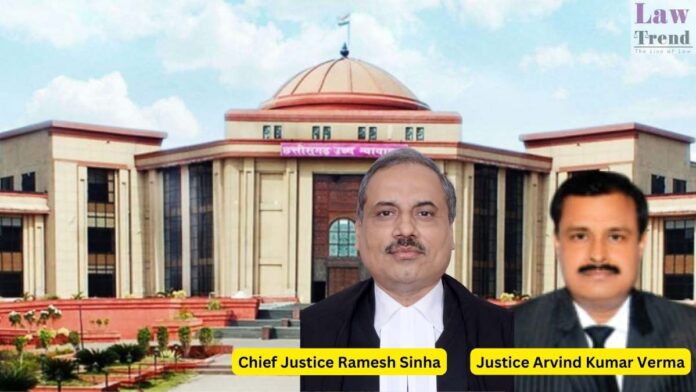The Chhattisgarh High Court has upheld the conviction and life sentence of Akash Kosare and Sanju Vaishnav for the abduction and murder of Hariprasad Dewangan, despite the absence of a recovered dead body. The Division Bench comprising Chief Justice Ramesh Sinha and Justice Arvind Kumar Verma dismissed the appeal filed under Section 374(2) CrPC against
To Read More Please Subscribe to VIP Membership for Unlimited Access to All the Articles, Download Available Copies of Judgments/Order, Acess to Central/State Bare Acts, Advertisement Free Content, Access to More than 4000 Legal Drafts( Readymade Editable Formats of Suits, Petitions, Writs, Legal Notices, Divorce Petitions, 138 Notices, Bail Applications etc.) in Hindi and English.




